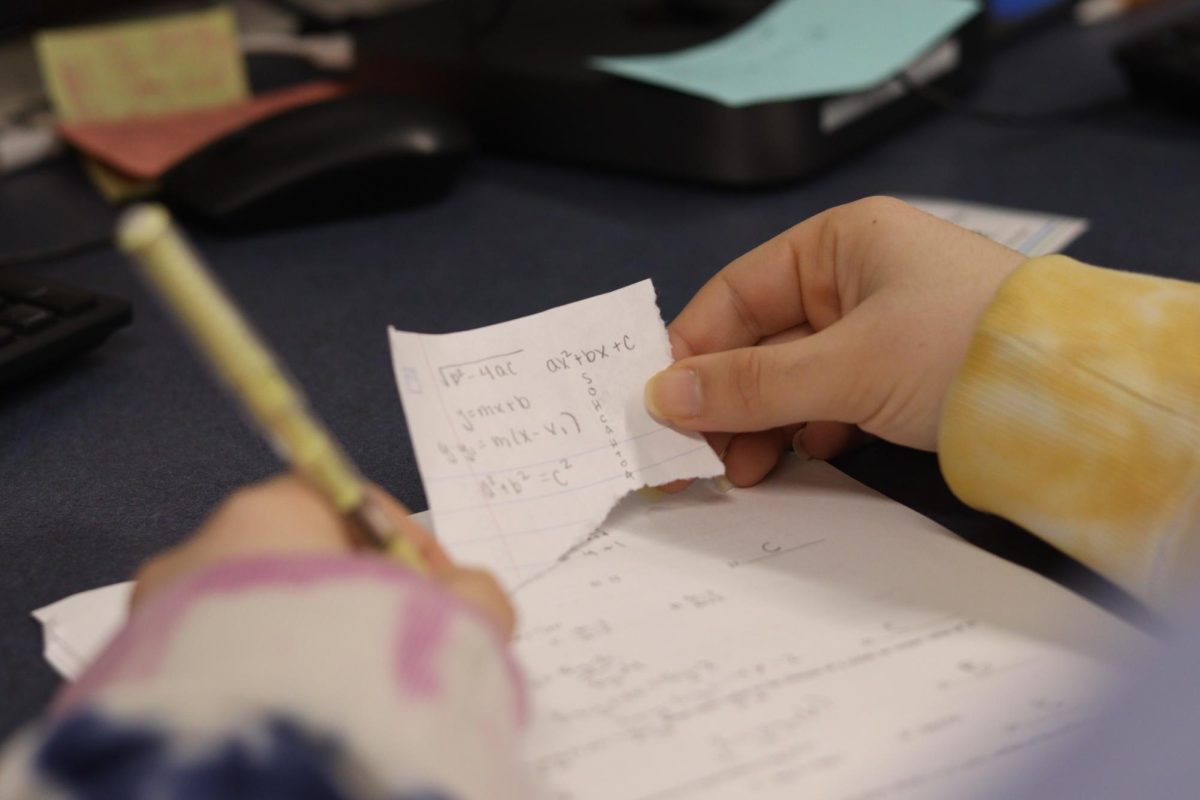If there is one thing high schoolers are no strangers to, it’s the ongoing pressure of academics, sports, and social interactions. At times, students can feel overwhelmed by these different activities, leading them to resort to deceptive shortcuts such as cheating.
More than ever, with the introduction of artificial intelligence, cheating has been more prevalent than ever before.
This can lead to students being unable to understand the concept being taught while relying on outside sources to get them their grades.
According to the magazine, Psychology Today, several different external motivations influence students to continue their cheating spree. Some motives include the desire to get a good grade, while also having the underlying feeling that “everyone is doing it so cheating must be okay”.
Sophomore James Wilson* believes that cheating is a common issue present throughout classrooms.
“I think students cheat so much because they have a lot going on, and there simply isn’t enough time for them to thoroughly study everything they need to. There are teachers who test students on things they haven’t learned in class. As a result, students have to do a lot of their learning at home,” Wilson* said.
For students, the most important thing is to get a good grade in their designated classes, however, for teachers, cheating is much more difficult to process, as their job is to make sure this doesn’t happen.
IB Psychology teacher, Mark Hewitt, has had several experiences with students cheating, noting that as their internal motivations overtake their true morals, students will be more susceptible to cheating.
“I think there are a ton of different possible motivations. They fear failing, the reaction of parents, or what might happen to their GPA, or their entire future. And in that moment, those things likely outweigh the risk of being caught,” Hewitt said.
For teachers especially, the challenge of understanding why students would cheat after being caught is unclear. Desensitivity to this issue may be a key reason.
“It’s always hard to imagine why students would cheat once they have been caught. But I would imagine that for certain students the risk of being caught is outweighed by the certainty in their mind that they will get a bad grade if they don’t cheat,” Hewitt said. “Also, from my experience, students seem to believe teachers have no idea how to spot cheating, whether it be a phone, notes, etc.”
More than ever, society has been trying to find a way to prevent cheating, as it has been taken to far extents at times. Students, staff, and administration all have different ideas on how to prevent this ongoing problem.
Junior Ryan Smith* believes that time management is a key reason students cheat.
“We could prevent this by giving students more time to grasp the information and suggesting learning tactics or strategies. Also, make sure the information on the test is actually on the notes,” Smith* said.
Staff, on the other hand, are trying to take approaches to prevent students from cheating in their classes.
“It’s hard to say whether students are cheating more these days, but it sometimes feels like it. I think technology has provided more opportunities to cheat, so it may just come down to ease and availability. I often try to make tests and assessments paper-based still as a way to counter cheating when I can,” Hewitt said. “But technology has also given us a chance to catch cheating in ways that we couldn’t before, so for certain subjects and types of work I would bet that cheating has actually declined.”
With advancements regarding the prevention of cheating in our school systems, providing support to students while fostering integrity is critical for change.


